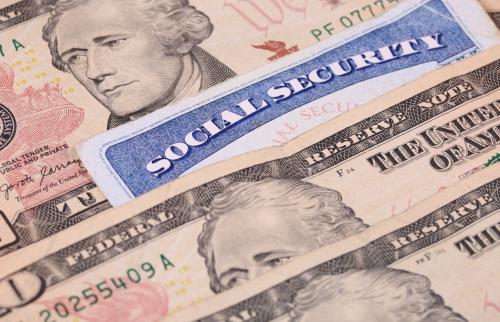The long-term finances of Social Security are in bad shape. Its reserves are expected to run out in less than 20 years, and under current law that will force cuts in benefits.
Some experts argue that the best way to get the system’s finances back in shape would be to raise the full retirement age above the scheduled 67. That would bolster the program’s finances in two ways. First, by increasing payroll tax revenues, because people would work longer. And second, by reducing the period each American would collect benefits.
That approach might seem fair, since on average Americans are living longer. Life expectancy is more than 15 years higher than when Social Security began in 1937.
But we are not all average. Lower-income Americans have not seen much increase in life expectancy, while more affluent people have. Thus raising the retirement age would cut total lifetime benefits proportionately more for those on the bottom rungs of the income ladder.
But let’s think differently about Social Security. Right now, monthly checks are linked to a person’s earnings during their working years. So, better-paid workers get bigger checks. True, lower-paid workers pay much less in Social Security payroll taxes and usually get back much more than they paid in taxes – even counting in interest on their tax contributions. Upper-income workers typically get back a lot less than they paid in, despite larger checks.
But low-wage workers still get smaller Social Security checks to try to meet their monthly needs in retirement. Many end up falling below the poverty line and have to apply for means-tested assistance from Supplementary Security Income (SSI), another part of the Social Security system.
What if we were to recast regular Social Security as true insurance? Insurance is something that pays out only when things go wrong. If you don’t have a car crash, or your house doesn’t burn down, you don’t get your premiums back later in life. What you do get is protection and peace of mind.
So imagine Social Security as insurance protection against being financially insecure in retirement. If it were that, it would be very different from today.
For one thing, we would want the lowest-income retirees to get the largest regular check – assuming they had dutifully paid their payroll tax “premiums” when working – and also enough to keep them comfortably out of poverty without having to rely on SSI. Some retirees with a modest income from, say, an IRA, might still need a small Social Security “insurance payout” to maintain a reasonable standard of living.
In a true insurance model like this, retired Americans with healthy income from assets would get no Social Security check at all, rather than getting the largest checks as they do today. If Social Security is seen as insurance against financial insecurity then Warren Buffet clearly doesn’t need a check. Nor do other older Americans for whom a monthly Social Security check is just a little bit more icing on an already rich cake.
If we reformed Social Security to make it more like real insurance, we’d need to do it gradually so people could plan, with the changes only fully affecting workers who are perhaps in their early 40s today. There would be a significantly higher basic benefit check for the least well-off. For retired singles with retiree income over, say, $25,000 in today’s dollars, the check would be reduced according to income until for a retiree with, say, $100,000 in other income there would be no check at all.
With this reform, regular Social Security would more efficiently protect the elderly against economic insecurity and from poverty without the stigma of applying for SSI “welfare.” And it would help put the program on a more secure footing. To be sure, some would say it’s not fair that many Americans would pay Social Security taxes and get nothing in return. But that misses the point that Social Security should be insurance. And what’s really not fair is that many today pay high payroll taxes for a check that doesn’t keep them out of poverty.
Some other critics might argue that without checks for all, the coalition needed to preserve Social Security would unravel. I doubt that very much. Social Security has an iconic status in America and there is no public support for ending it.
So let’s not allow Social Security’s deteriorating finances to make it a steadily worse deal for those who need it most. It’s time instead to look at a reform that refocuses its mission on insuring financial security for seniors.
Editor’s note: This piece originally appeared in Real Clear Markets.
The Brookings Institution is committed to quality, independence, and impact.
We are supported by a diverse array of funders. In line with our values and policies, each Brookings publication represents the sole views of its author(s).



Commentary
Op-edIt’s time to end Social Security for the rich
April 5, 2016